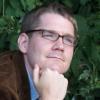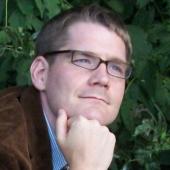Where are you?
Editorial
About a week ago I got to be a part of the third annual Giant Steps conference. For the uninitiatied Giant Steps is a day-long conference made up of panels, workshops, and unexpected conversations. The way the organizers of Giant Steps describe it is an “interactive conference for creative entrepreneurs and entrepreneurial creatives.”
I think the phrase “creative entrepreneurs and entrepreneurial creative” nicely describes the bulk of theater makers I know. We spend a fair amount of energy making art our business and are greatly aided when we’re able to see business as an art. Aside from the panel I moderated on creative parents, which I thoroughly enjoyed but I also acknowledge was firmly in a bunch of my wheelhouses, I was able to take in a workshop on artists valuing their work and several panels where various successful creative people shared personal stories of where they are now and how they got there.
There was an element in the personal narratives of numerous speakers at this year’s Giant Steps that I’ve also read and heard from other creative and successful people that I find compelling and inspiring no matter how many times I hear it. Artist after artist said something to the effect of “I’m not anywhere near where I thought I would end up five or ten years ago.”
Since the conference I’ve been thinking a lot about this idea of not being where you thought you’d be or where you’d planned to be. Inevitably, I apply this idea to my own work as an artist and its startling how far away the work I’m doing now is from where I could have expected to go five years ago.
Five years ago I had recently completed my bachelors degree after having decided temping to support my work as an actor and writer wasn’t a sustainable plan a few years prior and enrolling in University. I had a one year old daughter and was contemplating taking my first ever salaried job or pursuing a masters degree in creative writing with eye toward moving away from theater and towards long-form fiction writing (and, let’s be honest, teaching).
Cut to the present and I’ve been working that salaried office job for the last five years but I also now have my own all-ages theater company, I write for a performing arts website (this one!), and I produce podcasts. None of these are things I would have guessed I’d be doing now and I don’t think I could have made a plan with an eye towards doing all the various work I’m doing.
There’s a part of me that wants to have a very clear, detailed plan for my life. I want the security of knowing where I’m at and knowing where I’m headed. That’s the part of me that ruled by fear and an insecure inner-child who just wants to be taken care of. But there’s another part of my personality, I hope the larger and more influential part, that is driven by a desire to create new things and have unexpected experiences. My creative self knows that having a plan is important and necessary but the minute that plan takes precedence over the possibility of saying yes to an opportunity that I wasn’t specifically looking for is the minute I stop having a rich creative life.
There’s a lot of insecurity in being an artist and trying to make a living from creative work (although lately I’ve taken to saying that in this economic atmosphere there’s a large amount of insecurity in pretty much all work). The risks artists take in their work isn’t just in not knowing whether people will emotionally support their vulnerability but also in not knowing if people will financially support their work.
But the message I’m getting from a great many people doing creative work and having success at it is that without the risk of failure and the taking of chances there is no chance of making something creatively and emotionally fulfilling. And isn’t that what we’re all really looking for?




